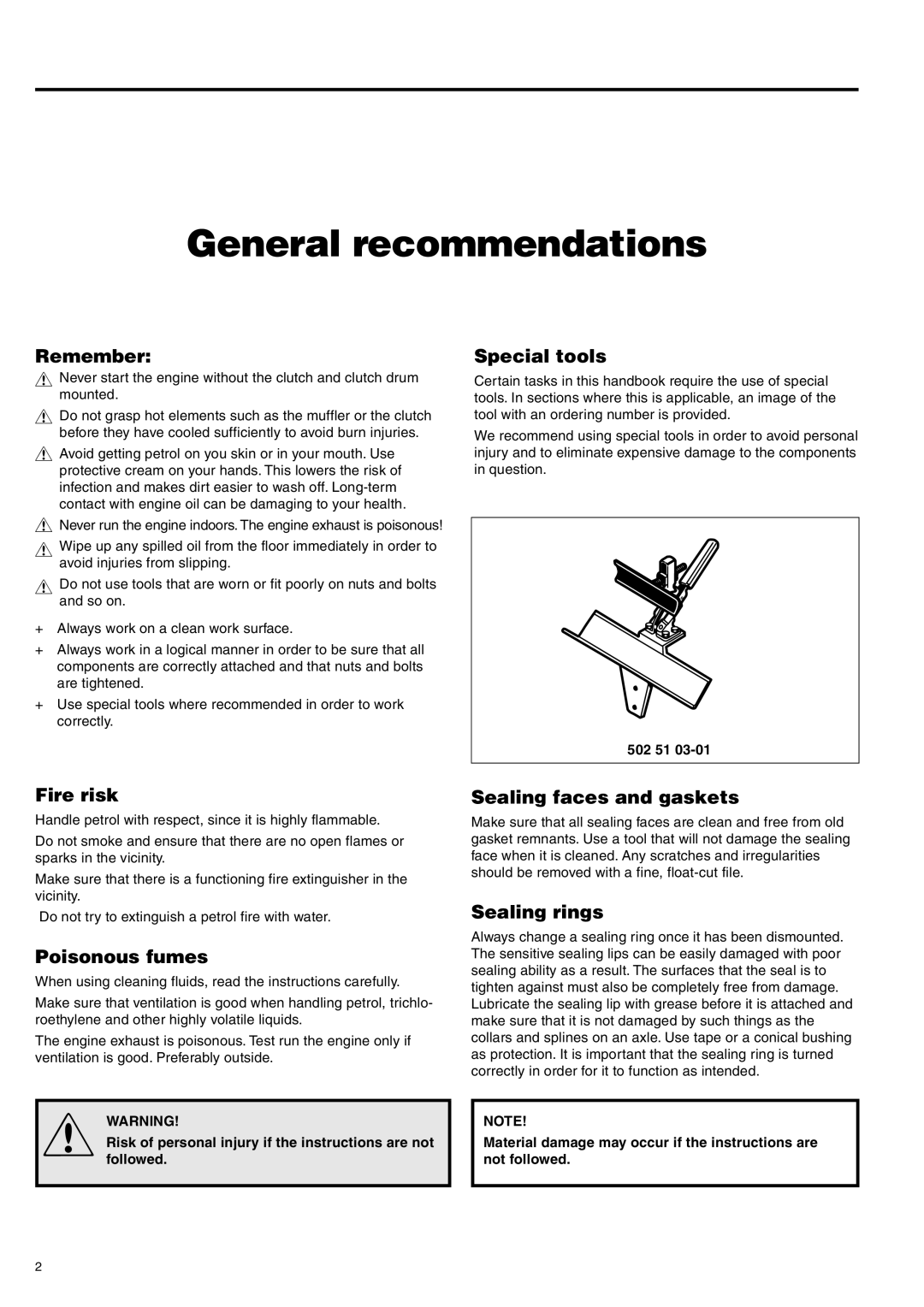
General recommendations
Remember:
!Never start the engine without the clutch and clutch drum mounted.
!Do not grasp hot elements such as the muffler or the clutch before they have cooled sufficiently to avoid burn injuries.
!Avoid getting petrol on you skin or in your mouth. Use protective cream on your hands. This lowers the risk of infection and makes dirt easier to wash off.
!Never run the engine indoors. The engine exhaust is poisonous!
!Wipe up any spilled oil from the floor immediately in order to avoid injuries from slipping.
!Do not use tools that are worn or fit poorly on nuts and bolts and so on.
+Always work on a clean work surface.
+Always work in a logical manner in order to be sure that all components are correctly attached and that nuts and bolts are tightened.
+Use special tools where recommended in order to work correctly.
Special tools
Certain tasks in this handbook require the use of special tools. In sections where this is applicable, an image of the tool with an ordering number is provided.
We recommend using special tools in order to avoid personal injury and to eliminate expensive damage to the components in question.
502 51
Fire risk
Handle petrol with respect, since it is highly flammable.
Do not smoke and ensure that there are no open flames or sparks in the vicinity.
Make sure that there is a functioning fire extinguisher in the vicinity.
Do not try to extinguish a petrol fire with water.
Poisonous fumes
When using cleaning fluids, read the instructions carefully.
Make sure that ventilation is good when handling petrol, trichlo- roethylene and other highly volatile liquids.
The engine exhaust is poisonous. Test run the engine only if ventilation is good. Preferably outside.
!WARNING!
Risk of personal injury if the instructions are not followed.
Sealing faces and gaskets
Make sure that all sealing faces are clean and free from old gasket remnants. Use a tool that will not damage the sealing face when it is cleaned. Any scratches and irregularities should be removed with a fine,
Sealing rings
Always change a sealing ring once it has been dismounted. The sensitive sealing lips can be easily damaged with poor sealing ability as a result. The surfaces that the seal is to tighten against must also be completely free from damage. Lubricate the sealing lip with grease before it is attached and make sure that it is not damaged by such things as the collars and splines on an axle. Use tape or a conical bushing as protection. It is important that the sealing ring is turned correctly in order for it to function as intended.
NOTE!
Material damage may occur if the instructions are not followed.
2
